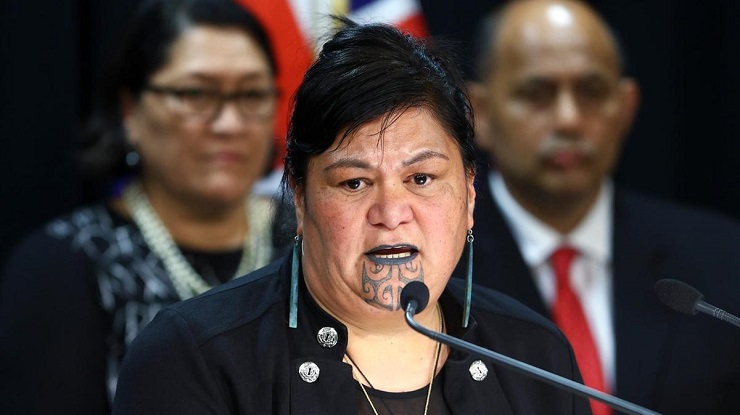New Zealand, despite being among the “Five Eyes” intelligence alliance alongside the US, Canada, the UK and Australia has resisted attempts by the Eyes’ larger members to join the ongoing and ever-expanding propaganda campaign being waged against China.
New Zealand has also enjoyed a much closer relationship with China than the other “Eyes” over the last several decades. It was the first to enter into a free trade deal with China. It is home to a large and growing ethnic-Chinese population making up 5.3% of New Zealand’s population as of 2018.
New Zealand is also the only “Eye” who has signed onto China’s ambitious Belt and Road Initiative (BRI).
So close are China’s and New Zealand’s ties that US Secretary of State Mike Pompeo had suggested the possibility of the “Five Eyes” “disconnecting” from New Zealand if its ties with China and its involvement in Beijing’s BRI posed a “security risk” to the national security of the remaining “Eyes,” New Zealand’s Stuff would report in its article, “NZ still plotting place in China’s Belt and Road.”
New Zealand’s New Foreign Minister Putting National Interests First
Providing a microcosm of New Zealand’s increasingly paradoxical relationship with China and its status among the “Five Eyes” was a recent news segment on Qatari state media, Al Jazeera, where Al Jazeera’s Richelle Carey needled New Zealand’s Foreign Minister Nanaia Mahuta over New Zealand’s refusal to pressure China over allegations made regarding Uyghurs in Xinjiang and the crackdown on anti-government protesters in Hong Kong.
Foreign Minister Mahuta was firm in stating that China was New Zealand’s largest trade partner and that while New Zealand has made it clear to China (and that China fully understands) how New Zealand views matters of human rights and governance, it was not an issue that should interfere with the ties between the two nations.
Not mentioned by Al Jazeera is that many of the claims made against China are being pushed by the United States government and media organisations (including Al Jazeera) that it influences or funds and directs. Also not mentioned was the US’ history of fabricating such claims to help advance US foreign policy objectives against a targeted competitor.
China’s security operations in Xinjiang, for example, are taking place after years of deadly terrorism which killed hundreds and at a time when thousands of Uyghur extremists are still waging war against the Syrian government in a conflict they will eventually return to China from.
The threat in Xinjiang is serious and attempts by the West to frame China’s efforts to reduce this threat as “human rights abuses” is particularly cynical especially when both the terrorist threat inside China and the training and arming of Uyghur extremists in Syria are both being funded and organised by the West and its allies themselves.
The same can be said of accusations of China’s supposed abuses in Hong Kong which hinge on claims that the protests were simply expressions of free speech and the aspirations for “democracy” by the people of Hong Kong. In reality, the protesters were funded and organised by the US specifically to create yet another security threat for Beijing to react to and another opportunity for the West to cite that reaction as “repression.”
While New Zealand’s Foreign Minister will unlikely call out others in the West for these blatant provocations aimed at China, she has clearly decided she would not play part in using these provocations and China’s reactions to them as an opportunity to “bash” China.
In this there is a hopeful sign that some in the West are slowly realising the tidal change taking place geopolitically and that the rise of China is an opportunity rather than a threat. It is also a sign of hope that some are abandoning pretending the current prevailing international order presided over by Washington, London and Brussels, the same order that brought us the Iraq war in 2003 and the destruction of a region of the earth stretching from North Africa to Afghanistan in Central Asia from 2011 onward is every much as bit the threat in reality that the West claims China is in fiction.
Joseph Thomas is chief editor of Thailand-based geopolitical journal, The New Atlas and contributor to the online magazine “New Eastern Outlook”.

